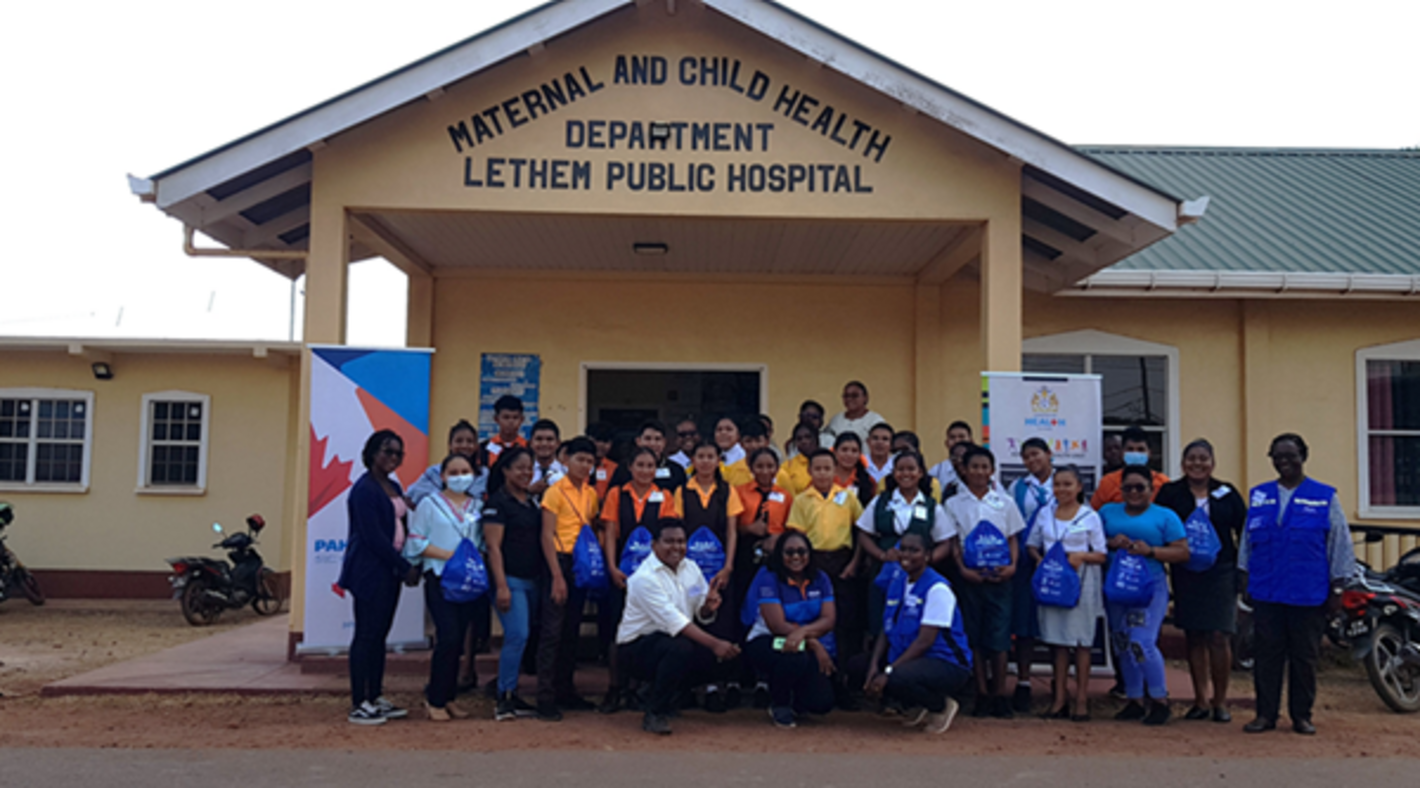
PAHO/WHO supported the Ministry of Health, Guyana/🇬🇾 Adolescent Health Unit, through the PAHO Global Affairs Canada project to build capacity of 22 students (11 Males and 11 Females aged 14 to 16) and 9 teachers (2 Males and 7 Females aged 17 to 29 ) in Region 9, targeting four secondary schools namely St Ignatius , and from the remote hinterland villages of Nappi, Annai and Sand Creek to establish School Health Clubs simultaneously with 4 Community Health Workers (1 Male and 3 Females aged 21 to 32) from Nappi and Central Lethem. In keeping with the mandate of the Canadian project, it targeted Indigenous remote communities and vulnerable populations which included the adolescents and health workers .
The School Health Club initiative is a suitable platform to provide information to adolescents to grow and develop in good health including good nutrition and healthy food choices, age-appropriate comprehensive sexuality education, mental health, family planning, share opportunities to develop life skills, integrate health services that are acceptable, equitable and effective and providing safe and supportive environments for adolescents. The initiative also provides opportunities for adolescents to meaningfully participate in the establishment of clubs, facilitating sessions on health and social development to peers to maintain overall good health while addressing their specific needs and rights and to be role models to the school community. Students participated in role play exercise to display their role as facilitators of their school health clubs. This exercise gives them the opportunity of being prepared to share accurate health information in a knowledgeable way.
Participants were very receptive to all the sessions presented, especially Sexual and Reproductive Health, basic nutrition, facilitation and team building exercises.
Fourteen-year-old Hughson Gones from Sand Screek Secondary school, region 9, shared that he learned a lot from the presentations especially on the sexual and reproduction and nutrition topics. He said “the school health club would be beneficial for his school, since there aren’t a lot of health workers in my community and the school health club would help other children to learn more on health.”
School teams with support from the health teams were enthused to establish school health clubs. They were encouraged to share the content with other students, teachers, and health workers respectively and promote health seeking behaviours among their peers.
Meal planning – healthy food choices resonated well with the adolescents as was evidenced in the hands-on exercises to plan nutritious meals using the foods available in their communities noting their cultural practices.
The School Health Club platform was also mooted as an example of joint delivery interventions to foster synergies with the health system to promote the HPV vaccination as part of the adolescent health programme.
Sixteen-year-old Terika Williams from Nappy Secondary school, region 9 shared that she learned many things from the three-day training. “I have learned about self-esteem, and how we can control stress and depression in our lives. I think the program will be good for my school and I want to teach other children what I have learned”.
PAHO/WHO will continue to provide technical support to the Ministry of Health Adolescent Health Unit to following up on the school health clubs established in Lethem and to provide any support to the schools that were trained.








